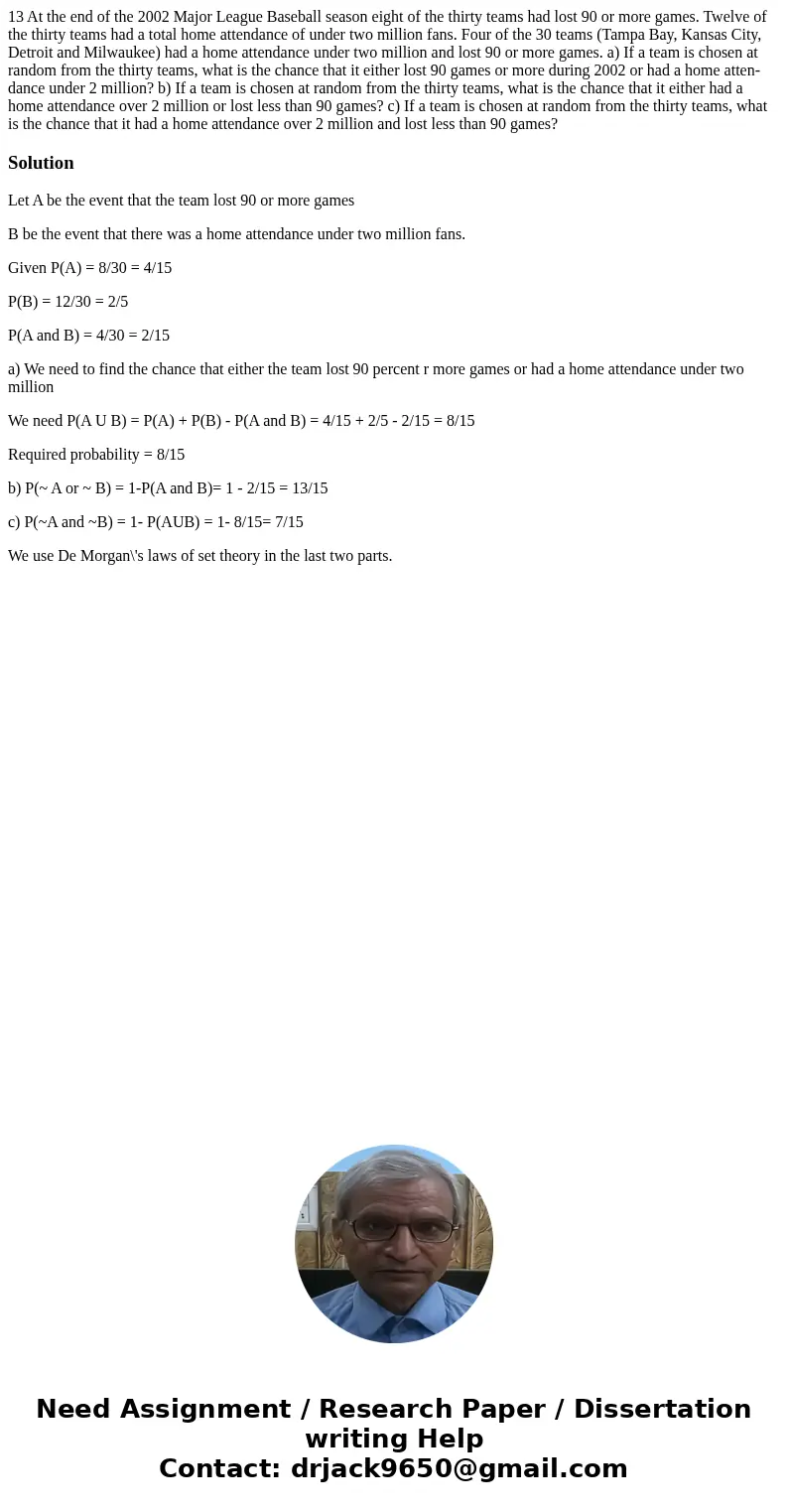13 At the end of the 2002 Major League Baseball season eight
13 At the end of the 2002 Major League Baseball season eight of the thirty teams had lost 90 or more games. Twelve of the thirty teams had a total home attendance of under two million fans. Four of the 30 teams (Tampa Bay, Kansas City, Detroit and Milwaukee) had a home attendance under two million and lost 90 or more games. a) If a team is chosen at random from the thirty teams, what is the chance that it either lost 90 games or more during 2002 or had a home atten- dance under 2 million? b) If a team is chosen at random from the thirty teams, what is the chance that it either had a home attendance over 2 million or lost less than 90 games? c) If a team is chosen at random from the thirty teams, what is the chance that it had a home attendance over 2 million and lost less than 90 games? 
Solution
Let A be the event that the team lost 90 or more games
B be the event that there was a home attendance under two million fans.
Given P(A) = 8/30 = 4/15
P(B) = 12/30 = 2/5
P(A and B) = 4/30 = 2/15
a) We need to find the chance that either the team lost 90 percent r more games or had a home attendance under two million
We need P(A U B) = P(A) + P(B) - P(A and B) = 4/15 + 2/5 - 2/15 = 8/15
Required probability = 8/15
b) P(~ A or ~ B) = 1-P(A and B)= 1 - 2/15 = 13/15
c) P(~A and ~B) = 1- P(AUB) = 1- 8/15= 7/15
We use De Morgan\'s laws of set theory in the last two parts.

 Homework Sourse
Homework Sourse